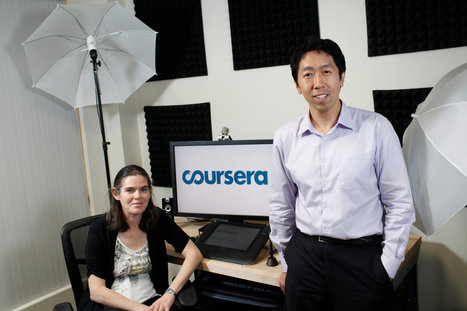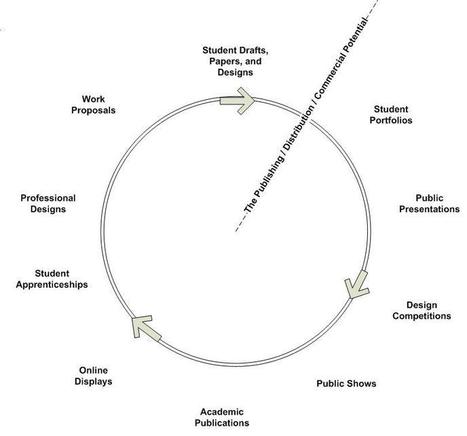"The New York Times dubbed 2012 the year of the MOOCs – massive open online courses. Suddenly the discourse of MOOCs and the future of the university hit the headlines with influential reports using the language of “the revolution to come.”.
Via Dr. Susan Bainbridge, juandoming, iPamba



 Your new post is loading...
Your new post is loading...










This articles sets out some of the thinking behind the MOOC 'revolution', and is a compact review of the subject. Some highlights relevant to #oerrrhub:
"One of the claims that has been made is that the major MOOC providers do not tend to hire people who have experience or training in instructional design, course design, digital pedagogy, the learning sciences or educational technology. Instead they are hiring programmers, often with little or no experience."
"MOOCs are to get a great push from legislation being considered in the California and Florida senates. Senate Bill 520 – “Student instruction: California Online Student Incentive Grant programs” – was introduced by Sen. Darrell Steinberg in early June 2013 and passed unanimously, although the amendments have been significant. The position paper The Right to Educational Access: Using Online Education to Address Bottleneck Courses in California, written for The 20 Million Minds Foundation, outlines the extent of the bottleneck problem and the online solution. Nearly 90 percent of California’s 112 community colleges reported waiting lists for courses in autumn 2012, with an average of 7,000 students on waiting lists per college. Meanwhile, only 60 percent of students at the University of California and a paltry 16 percent at California State University were able to earn a degree within the standard four years, largely because of their inability to register for the courses they need to graduate."
The conclusion is worth reproducing in full:
"I would like to suggest that “peer philosophies” are at the heart of a radical notion of “openness” and would advocate the significance of peer governance, peer review, peer learning and peer collaboration as a collection of values that form the basis for open institutions and open management philosophies. This form of openness has been theorized in different ways by John Dewey, Charles Sanders Pierce and Karl Popper as a “community of inquiry” – a set of values and philosophy committed to the ethic of criticism that offers means for transforming our institutions in what Antonio Negri and others call the age of cognitive capitalism. Expressive and aesthetic labor (“creative labor”) demands institutional structures for developing “knowledge cultures” as “flat hierarchies” that permit reciprocal academic exchanges as a new basis for public institutions.
The reinvention of the university as a public institution allows an embrace of a diverse philosophical heritage based on the notions of “public”: “the public sphere,” “publics” (in the plural), “civil society” and “global public sphere” – all concepts that hold open the prospect of addressing the local and the global – both the community, the regional as well as the national and the global. This is a philosophy out of which values can be forged and orientations adopted that reflect this heritage, which squares with an institutional identity as a part of a historical public system of higher education and which contributes to a global civic agenda of common world problems. MOOCs have a significant role to play in this situation.
The notion of the university as a public knowledge institution needs to reinvent a language and to initiate a new discourse that reexamines the notions of “public” and “institution” in a digital global economy characterized by increasing intercultural and international interconnectedness. This discourse needs to begin by understanding the historical and material conditions of its own future possibilities, including threats of the monopolization of knowledge and privatization of higher education together with the prospects and promise of forms of openness (open source, open access, open education, open science, open management) that promote the organization of digital creative labor and the democratization of access to knowledge."
Big questions for our Profesison...
How will this impact the CPA Profession's continuing education programs? How could MOOCs change the nature of "college eductaion" and the pre-requisites for CPA Exam qualification?